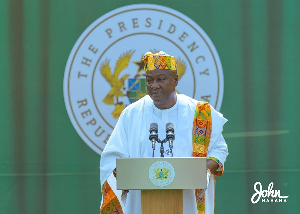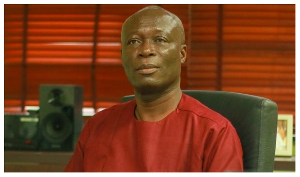President of the African Development Bank, Akinwumi Adesina has challenged those accusing Aliko Dangote of trying to monopolize the oil industry to establish their refineries in Nigeria instead of importing petrol and diesel from abroad.
Adesina made this statement on Monday, addressing the conflict between federal oil regulators and Aliko Dangote, CEO of Dangote Group.
The regulators recently accused Dangote of attempting to monopolize the energy industry.
In response, Adesina stated that seeking protection and support from the federal government for a $19 billion investment in Nigeria is not an attempt at monopolization.
He added that those who wish to compete should establish their refineries in the country, as this would be fair and help drive local productivity and boost the economy.
“In a nation that has been importing refined petroleum products for several decades, the abnormal simply became very normal. No smart investor would make a $19.5 billion investment and want it to be undermined by importers.
“To manufacture is extremely expensive and risky. This is even more so in Nigeria, given the very challenging business and economic environment, fraught with policy uncertainties and policy reversals, and where the self-defeating default mode of “simply import it” is always so easily rationalized and chorused to solve any problem.
“Competition is good for everyone. But are Dangote refineries anti-competitive? What is the evidence? Has Dangote Refineries prevented any other company from setting up refineries? Why have others not done so? How come they have not done so for several decades? Was it Dangote that held them back? But Dangote refineries surely cannot be asked to ‘compete’ with importers of petroleum products.
“That is not competition. Let the importers set up local refineries and compete by refining in Nigeria. That is fair and justified competition. We cannot and must not undermine, disparage or kill local industries, talk less of one that is of this scale — a jewel of industrialisation in Nigeria,” Adeshina said.
Controversy with Nigeria Oil Authorities
Recently, the Dangote Refinery has found itself in conflict with Nigeria’s oil regulatory bodies, particularly the Nigerian Midstream and Downstream Petroleum Regulatory Authority (NMDPRA).
Farouk Ahmed, the head of NMDPRA, accused the refinery and other local refineries of having high sulfur levels, up to 650 parts per million (ppm). He also suggested that Aliko Dangote, the CEO of the refinery, might be trying to monopolize the industry, which he believes could threaten the country’s energy security.
In response to these accusations, Dangote invited the regulatory authorities to inspect his Lagos plant and verify the quality of their products, asserting that they offer the highest quality products in Nigeria.
Dangote also decided to halt his plans to invest in Nigeria’s steel industry to avoid any perception of monopolistic intentions.
It is worth noting that Nigeria’s steel industry has long been underdeveloped and poorly invested. Dangote said that other affluent Nigerians could enter the steel sector, as his company’s board has advised him against pursuing further investments in that industry.
What you should know
The Dangote Refinery, located in the Lekki Free Zone near Lagos, Nigeria, is one of the largest oil refineries in the world. Initiated by the Dangote Group, it aims to meet Nigeria’s domestic demand for refined petroleum products, reducing the country’s dependence on imported fuel.
The refinery’s projected capacity is 650,000 barrels per day, which is expected to transform Nigeria from an importer to a net exporter of refined petroleum products.
Construction of the refinery began in 2016, with the project involving complex engineering and massive investments. The refinery includes a petrochemical plant and a fertilizer plant, making it a significant industrial hub in the region.
The Impact of the Dangote Refinery extends beyond the oil sector. It is anticipated to create thousands of jobs and stimulate economic growth in Nigeria. By producing a surplus of refined products, it aims to stabilize fuel prices and ensure a steady supply for local markets, contributing to energy security.
Business News of Wednesday, 24 July 2024
Source: nairametrics.com

















